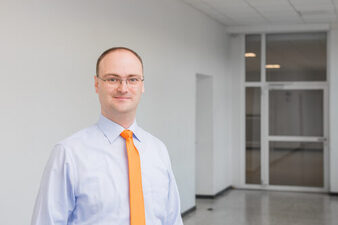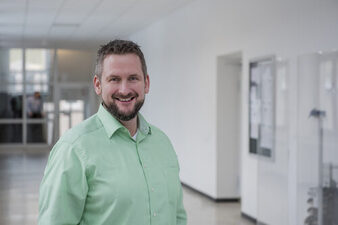What began in ancient times with the observation of the attraction of amber (Greek: "electro"), which was rubbed against fabric on springs, found a broad field of application with the industrial revolution to raise human living standards.
Today, it is impossible to imagine our lives without electricity. According to Statista, the subsection of smartphones in Germany amounted to 20.4 million units in 2021. Almost every household appliance is now electric and electrification is not stopping at mobility either. The number of electric cars worldwide rose from 1.4 million in 2015 to over 17 million in 2021, while electric bicycles (pedelecs) even reached a subsection of 40 million in the same year. This development is continuing at a rapid pace and would be inconceivable without engineers specializing in electrical engineering. Behind every new cell phone are several teams of specialists, spread across companies with a wide range of specializations, e.g. display or battery development.
Electrical engineers develop drives for electric vehicles, understand and design the circuits for new processors and their production processes, program modern and intelligent control systems for automatic production machines and plan the energy supply of today and tomorrow.
Career prospects
Current labor market studies show very good career opportunities for electrical engineering graduates. In the last quarter of 2021, for example, engineers looking for work were spoiled for choice between an average of four potential jobs. The German Electrical Engineering Association (VDE) estimates that an additional 100,000 electrical engineers will be needed in the next 10 years.
This large number of jobs is spread across a wide range of sectors, from car manufacturers, including their suppliers, to SMEs and energy supply companies.
These different sectors naturally require different focuses in engineering training.
Focus areas in electrical engineering studies
In the Faculty of Electrical Engineering at Fachhochschule Dortmund, we have therefore divided the Electrical Engineering course into three specializations. All specializations are based on common foundations, but each has its own unique characteristics:
- Drive systems and automation
How does an electric motor actually work and what types of electric motors are there? What is the difference to a generator? And how do I get a machine to carry out complex processes automatically and at the same time safely and precisely? You will find the answers to these questions in the "Drive Systems and Automation" specialization. The knowledge and skills you acquire in this specialization will open up a broad spectrum of engineering careers, ranging from measurement and control technology in plant engineering to the development of electric motors and their control electronics.
- Electrical energy and environmental technology
As explained at the beginning, the demand for electrical energy is increasing. But where does the electricity come from? And above all, how is it distributed from generation to the socket? What kind of technology and what methods are needed to guarantee a round-the-clock supply of electrical energy? In the "Electrical Energy and Environmental Technology" specialization, we get to the bottom of these questions with you. We provide you with the necessary specialist knowledge, starting with environmental measurement technology, the handling of very high voltages and the design of electrical distribution and transmission grids through to so-called renewable energy sources. This means that you will later find yourself working not only for energy suppliers, but also for companies that build the necessary components such as transformers, switchgear and monitoring systems. Engineers with this specialization will also find their vocation in the planning and design of energy systems and energy generation components such as generators, photovoltaic and wind power plants.
- Industrial electronics and sensor technology
The "Industrial electronics and sensor technology" specialization may open up the broadest range of applications as an electrical engineer. Questions such as "How does a computer actually know how warm it is right now?" or "How do I have to combine individual components to create a usable device?" are key issues in this specialization, whereby the focus - as the title suggests - is on measuring and processing physical quantities and designing electronic circuits. In this specialization, you will learn how a computer works and how to teach it to act according to your ideas - combined with the corresponding peripherals for actuators and sensors. With this knowledge and these skills, you will have the opportunity to gain a foothold in many areas of electrical engineering, in automation as well as in energy supply - depending on which company you work for. Electronics engineers are needed wherever components are developed, regardless of whether they are PV inverters, bicycle batteries, control units for electric windows or modern, energy-efficient pumps.
Conclusion
By choosing to study electrical engineering, you are choosing one of the most interesting and currently most important subjects in engineering. The career prospects are very good.
Therefore:
Follow in the footsteps of renowned electrical engineering pioneers such as Werner von Siemens, Nikola Tesla or Thomas A. Edison and choose to study electrical engineering, at Fachhochschule Dortmund of course!


